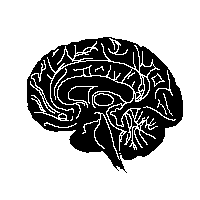
~ writing, programming, art ~
<< Previous next >>
6 September 2015
Stolen Ideas
"Intellectual property theft." What is it, really? This one phrase encompasses a gamut of activities dealing with the misuse of information. However, "theft" does not suffice to encompass their variety, and this miscategorization has incapacitated the American legal system in regards to minor instances of copyright infringement. The list I have created here illustrates the absurd extremities collected under the umbrella of "theft".
The first type of misuse I will call "leaching". An individual acquires information without compensating the information's creator(s), then uses it personally. Imagine that a person downloads a movie from some shady internet site, watches it, and then deletes the file. They have gained only personal satisfaction.
The second type I will call "sharing". An individual expends some effort to acquire non-compensated information and then shares it with a circle of friends. Imagine, in this scenario, a person downloads a movie as before, then sets up a home theater and invites friends over to watch it. They have gained both satisfaction and popularity or prestige.
The third type I will call "freeloading". An individual or entity acquires the information as before, then re-sells it. Suppose that, after downloading the movie, this person then burned five or ten DVDs, printed out some cases, and sold them around school. This type finally gains financial profit, but I would liken it to unfair competition, not theft.
The fourth type I will call "espionage". In this act, an individual or entity acquires information and employs it in the betterment of some service they have already been selling. This could include taking trade secrets or copying a client list. It is also financially motivated, and presents itself as unambiguously unfair competition.
The fifth and final type I will, at last, call "theft". In this case, an individual or entity acquires information from another individual or entity while simultaneously deleting the originals, then claims to have generated said information. Imagine that an artist wrote a song, only to have another take the music and copyright it. This may garner prestige, profit, or both, but differs in that it destroys the creator's capacity to generate further profit from the information. It is no longer unfair competition; it has progressed to theft.
These particular designations are not important, and I am not trying to name anything. Rather, I created this list to illustrate the inconsistency of referring to all copyright law violation as "theft". I would also strongly argue that these categories embody gradations of severity. A first-type offense does not equate to a fifth-type offense.
In each of these five categories the intent, means, and effect vary significantly. Due to the absurdly severe consequences of a first-type offense under present regulations, the government has been forced to ignore tens or even hundreds of millions of daily violations: The alternative would be mass incarceration of more than half of America's population. The law is broken. In lieu of the present system, a small but widespread deterrent to first and second type offenses ought to be enacted.
I will leave the details of such systems to lawmakers. Nevertheless, regardless of the manner in which the law accommodates this gradient, it must acknowledge these differences without excusing any of type of offense.